Invesco Global Systematic Investing Study 2023

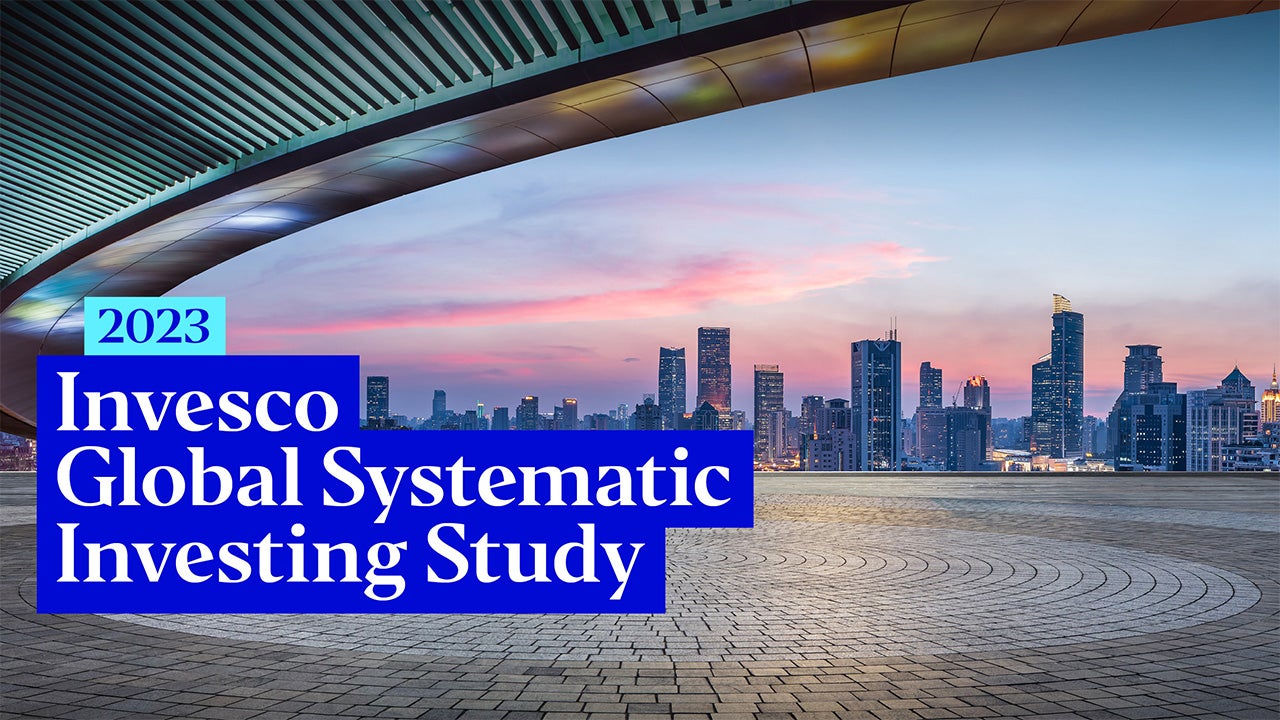
Welcome to Invesco’s Global Systematic Investing Study 2023
This year, we’ve refreshed the title of the annual factor investing study, to the Global Systematic Investing Study, reflecting the progression of quantitative investing over the past 7 years. Based on interviews with 130 systematic investors, defined as investors that employ structured, rules-based quantitative models and algorithms to make investment decisions, this research collects the opinions of senior decision makers responsible for managing US $22.5 trillion in assets (as of March 31, 2023).
Highlights from the study’s four key themes
Theme 1
The first theme highlights how systematic investors are broadening their toolkits. Looking beyond factor investing, they are deploying a broader range of quantitative strategies to decode and target performance drivers across market cycles. In a world of heightened volatility, these techniques are not only helping shield investors, but are used to identify and capitalize on new opportunities emerging from a shifting macro backdrop.
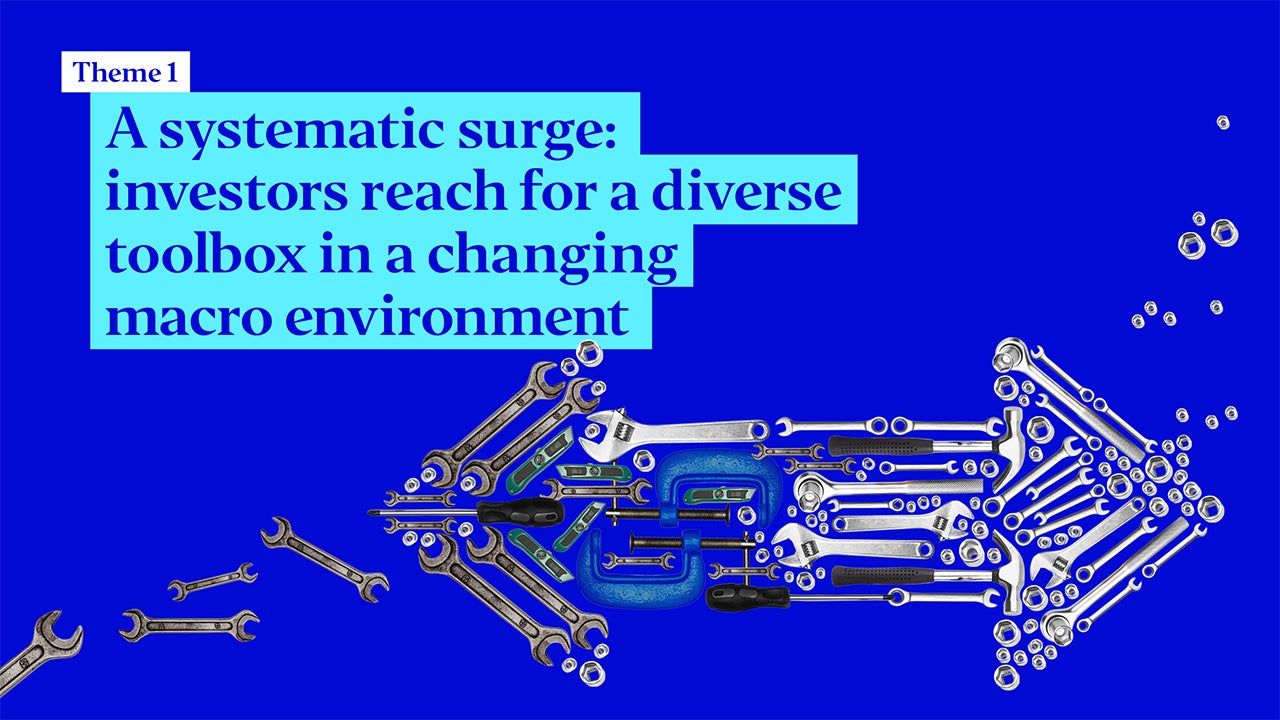
Which of the following are well addressed via a systematic approach? Sample size: 122.
Theme 2
Theme two highlights a notable shift in systematic portfolio construction. Investors are increasingly diversifying factor exposures over time, adjusting for macroeconomic forecasts and desired portfolio balances. The study reveals a growing acceptance of ‘growth’ as a bona fide investment factor, challenging traditional views. Additionally, ETFs have surged in prominence, becoming a key tool for systematic investors due to their versatility in hedging and dynamic portfolio management.
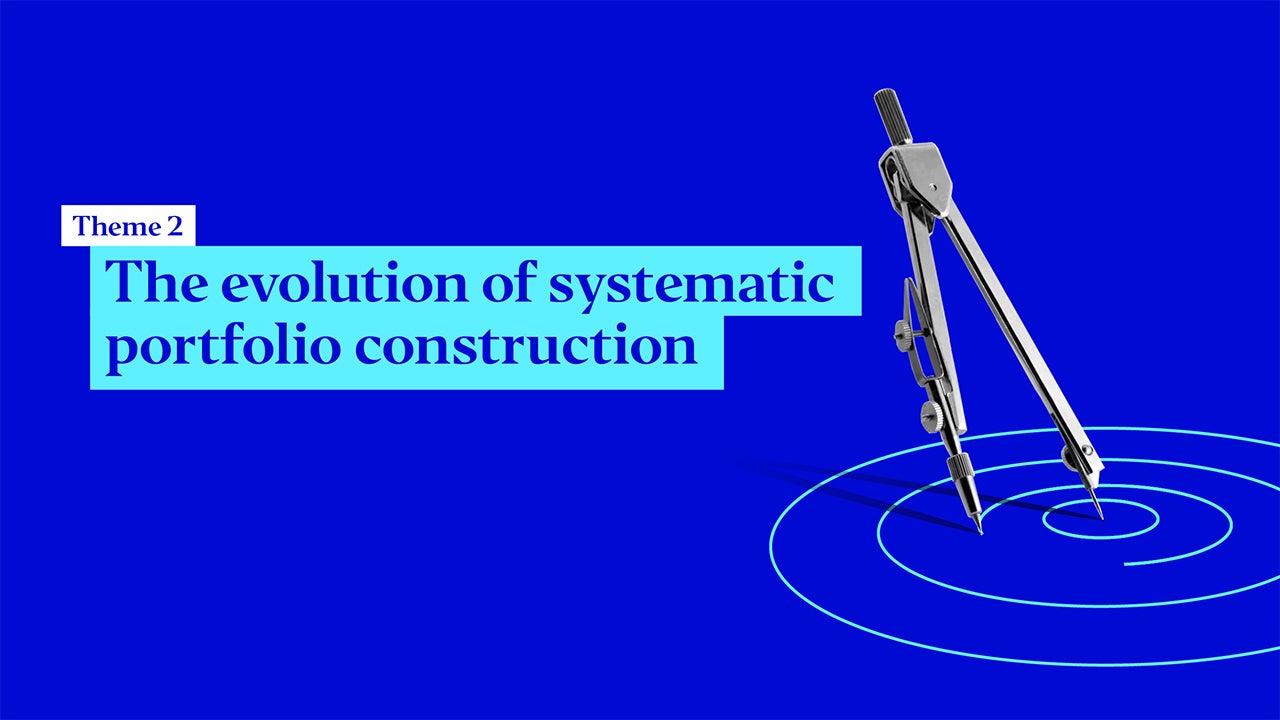
Why do you adjust your factor weights through time? Sample size: 96.
Theme 3
Theme three chronicles the rising adoption of artificial intelligence (AI). The Study finds half of respondents are already utilizing these technologies in their investment process. Investors believe AI will be transformational in the next decade, citing advantages for risk management, efficiency, and alpha generation but with challenges to be overcome, including complexity and cost.
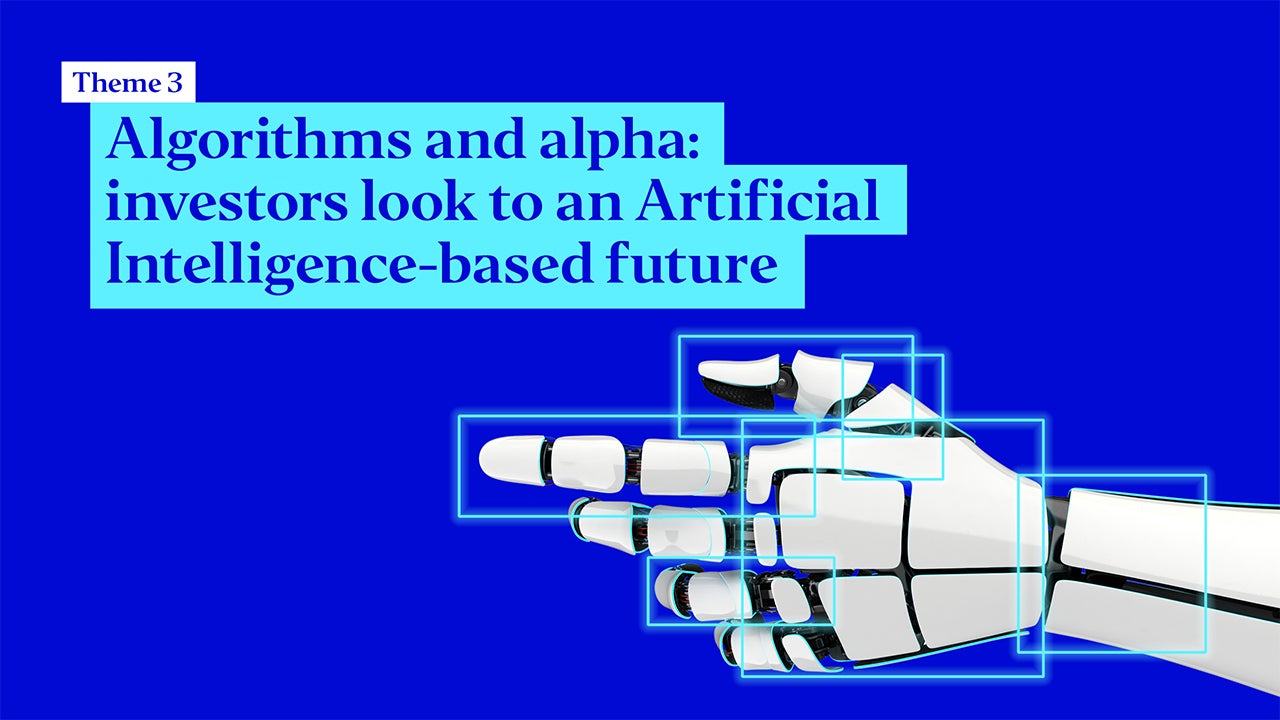
Do you incorporate AI into your investment process? Sample size: 130.
Theme 4
In theme 4, we find systematic strategies are aiding ESG investors in managing more complex demands, offering improved risk management and performance potential, and overcoming data constraints. Looking ahead, AI is expected to increasingly play a central role, with 50% expecting to use it for ESG integration, a significant leap from 17%. AI helps in developing proprietary ESG metrics and expand integration across new asset classes.
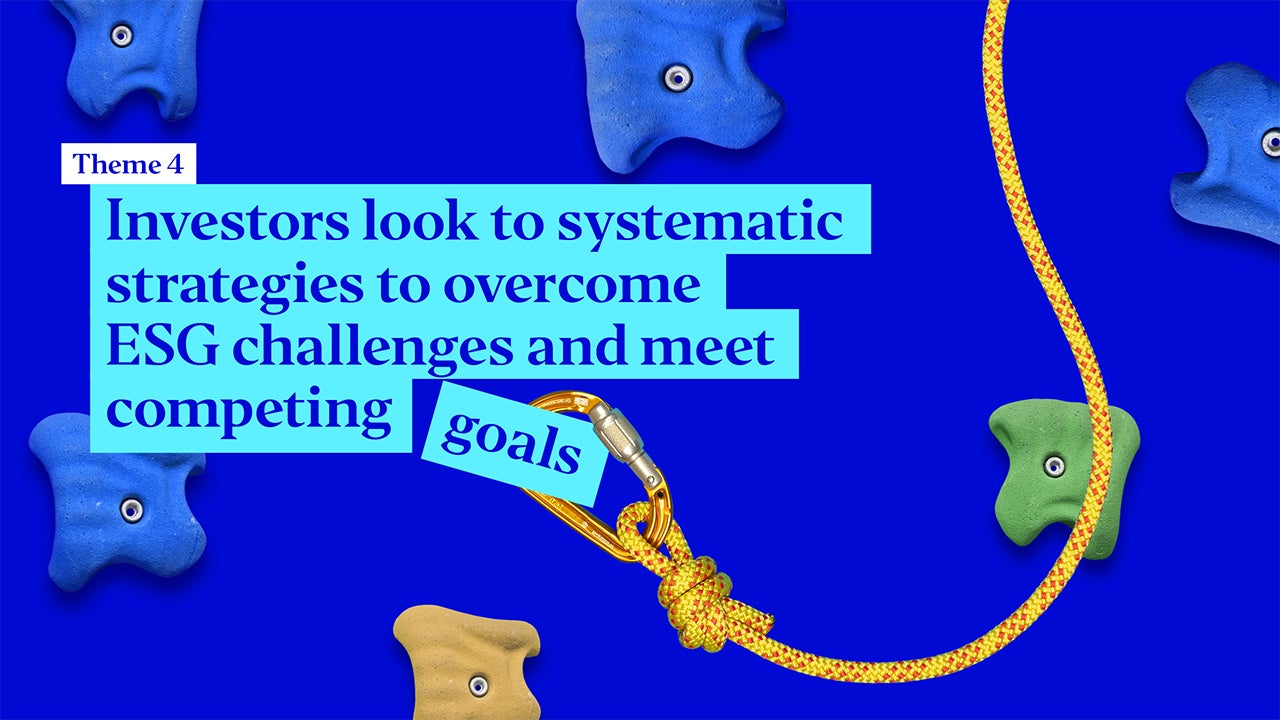
Why do you incorporate ESG? Sample size: 120.

